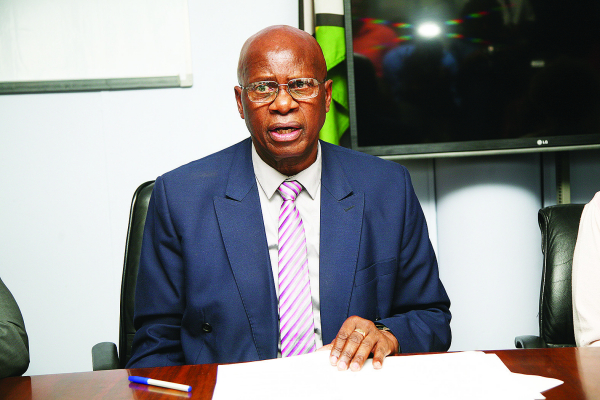
NEARLY two weeks after Finance and Economic Planning minister Patrick Chinamasa presented the 2018 National Budget, which was largely seen as the proverbial carrot for investment, venture capitalists are still refusing to bite.
For example, a day after the 2018 budget was announced, the Zimbabwe Stock Exchange (ZSE) market capitalisation dropped 2,18% on Friday to close the week at $10,11 billion, which represented a weekly drop of 13,80%.
By the end of last week, trading on the ZSE fared no better, as trade continued on a downward trend to close the week with a total market capitalisation of $9,89 billion, which was 2,27% lower than the previous week.
Stockbrokers have placed drop blames on investors withholding trades on big counters taking a more cautious approach, as they remain sceptical of President Emmerson Mnangagwa’s new economic thrust.
The caution comes despite the 2018 budget promising massive cuts on government expenditure, labour flexibility and limiting the indigenisation policy to only diamonds and platinum, moves that investors have been calling for in recent years.
As such, the question as to why the 2018 Budget has not been met with any positivity or optimism is finally being asked with the answer being simple: Inconsistency.
Since the dissolution of the Government of National Unity in 2013, the previous Zanu PF regime led by former President Robert Mugabe reneged on numerous promises and had been slow to make policy changes.
Some of these changes include removing a lot of red tape in setting up businesses, introducing a one-stop investment shop, mollifying the indigenisation policy, implementing special economic zones and addressing land tenure issues.
- Chamisa under fire over US$120K donation
- Mavhunga puts DeMbare into Chibuku quarterfinals
- Pension funds bet on Cabora Bassa oilfields
- Councils defy govt fire tender directive
Keep Reading
Other areas where government has been slow to implement are electoral reforms to make the environment conducive for voting as the democratic aspect of the country is becoming an increasingly big requisite for investor attraction, at least from the Western powers.
Although the 2018 National Budget has been awash with several initiatives and positive steps towards re-engagement with the West and attracting investment, government’s bad history on implementation remains a thorny issue with investors.
What investors expected was the setting-up of a committee inclusive of all parties and technocrats tasked with turning around the economy to try to instil confidence.
Further, as Zimbabwe now has a second executive President, Emmerson Mnangagwa, after 37 years, it was expected that executive orders would have been signed to quickly pass the 11 legislative pieces, among other reforms.
This would have not only signalled the acknowledgement of the snail’s pace of making reforms from the previous administration, but offered tangible commitment towards the expedition of reforms and policy changes.
The action would have buttressed his 100 days’ ultimatum that he handed to Cabinet so that if any failed, they would have been held solely responsible instead of the entire government.
But, alas, given the government is still lagging on implementing some changes, this will leave investors to continue to hold their purses.











